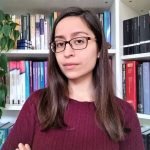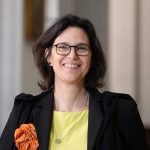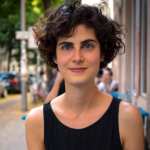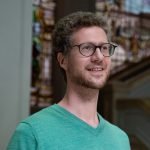Roundtable I
08.11, Mon, 15:30-17:00 (CET, UTC +1)
The Covid-19 pandemic we have been experiencing since the first months of 2020 has reminded us not only that we are all mortal, but also that some are “more mortal” than others. Indeed, the spread of the new coronavirus has affected the global population in an extremely uneven way, as can be seen by the unequal distribution of infection, recovery, and mortality rates across different countries (and across different social groups within each country). In any case, the exacerbation of social injustices linked to the pandemic goes far beyond its health-related consequences and also has social, economic, cultural, educational, environmental, and political consequences for conviviality-inequality relations. This roundtable brings together reflections on how social hierarchies – linked for instance to the dimensions of gender, race/ethnicity, and class, among others – impact the nexus between inequality and conviviality in the context of the pandemic in Latin America. Some of the questions that can be raised in this regard are the following: How do the pandemic and the measures adopted to contain it (social distancing, mobility restrictions, state financial aid, vaccination supply, etc.) affect income, educational opportunities, and general personal well-being according to hierarchical markers of difference? What is the impact for collective initiatives, political organizations, and social movements? Does conviviality-inequality also change at the micro-level of households, including shifts in the gendered arrangements of shared care work?

Mecila Junior Fellow 2021
Raquel Rojas Scheffer holds a PhD in Sociology from FU Berlin, where she was part of the International Research Training Group “Between Spaces”. She obtained an M.A. in Social Sciences from the HU Berlin (Humboldt University of Berlin), with a scholarship from the German Academic Exchange Service (DAAD). She is originally from Paraguay, where she earned a Specialist Degree in Social Development from FLACSO (Latin American Faculty of Social Sciences) and a B.A. in Social Sciences from the UNA (National University of Asuncion). She is a categorised researcher (Level I) at the Paraguayan National Council for Science and Technology (CONACYT). Her research focuses on inequalities, social movements, and labour relations.

Mecila junior Fellow 2021
Jerónimo Pinedo is a Social Sciences graduate (Licenciatura and Magister) from the UNLP. He obtained his doctoral degree in Social Sciences from the UNGS (National University of General Sarmiento) and the Institute of Economic and Social Development (IDES). He is Adjunct Professor in the field of analysis of Argentinian society in the Sociology Department of the Faculty for Humanities and Educational Sciences of the UNLP. Additionally, he is a member of the research staff of CISH-IdIHCS-FaHCE group (Centre of Socio-historical Research, Institute for Humanities and Social Sciences Research) of the same university. He is a specialist in the areas recent Argentinan history, mass culture (clases populares), collective movements, cultural studies, and academic community outreach. Currently, he is actively involved in the UNLP’s outreach activities in an organising capacity.

Rosario Aparicio López has a PhD in Demography from the University of Campinas and an MA in Economics from the National Autonomous University of Mexico (UNAM). From 2018 to 2020 she had a postdoctoral fellowship at the ‘Seminario sobre Trabajo y Desigualdades’ of El Colegio de México. She is currently a researcher at this same research cluster. She has also lectured a postgraduate course in Economics at UNAM. She is a specialist in ethnic demography and her main lines of research are: gender violence and ethnicity and indigenous women, labor markets and discrimination. She is the coordinator of the Latin American Population Association’s Demographic Network of Indigenous and Afro-descendant Peoples (PIAFAL) from 2020 to 2022, and a member of the Latin American Interdisciplinary Gender Network (LAIGN) based at Yale University.

Mecila Principal Investigator
Juan Piovani is Professor at the Facultad de Humanidades y Ciencias de la Educación (FaHCE), Universidad de La Plata (UNLP) and Researcher of the Consejo Nacional de Investigaciones Científicas y Técnicas (CONICET). He holds a PhD from Sapienza – Università di Roma and received the Houssay Award (2014) for his theoretical and empirical proposals in the field of research methodology in social sciences and the empirical analysis of employment and gender. His research focuses on Social Sciences in contemporary Argentina and the theory of sociological research methods and techniques.


Roundtable 2
09.11, Tue, 09:30-11:00 (CET, UTC +1)
Accelerated globalisation as we knew it seems out of step. The most obvious disturbances and frightening imbalances reverberate from the current pandemic, the climate crises, as well as the global rise of populist politics and nationalistic resurgence. Concerned people around the world share a sense of having reached a crossroads, at which other ways of being need to be found, including new ways of speaking about grown geographies and timeframes, as well as imaginaries of the future. Such concepts might revive the global project, introduce postglobal sentiments and desires, or do away with known scalar references altogether. The participants of this round table are invited to discuss when conviviality—with or without being conceptually tied to inequality—stands radically against the global project as we knew it, or emerges as one of its central, if overlooked and silenced characteristics. On the other hand, they will ask to what extent the concept of the postglobal is apt to sharpen an understanding of central characteristics of contemporary co-existence. It remains to be seen how the analytical potential of Encruzilhadas of Conviviality-Inequality reverberates in the concept of the postglobal or vice-versa, and whether particular world regions, such as Latin America or the Caribbean, are especially promising in making one or the other post/global dimension of competing conceptions of conviviality visible.
1) To what extent is the concept of the post-global ideal to focus on central characteristics of contemporary coexistence? Which are the problems, which are the opportunities?
2) How can the analytical potential of Encruzilhadas of Conviviality-Inequality be linked to the concept of the post-global?
3) To what extent is Latin America or a different world region especially suitable for making the postglobal or global dimensions of particular conceptual uses of conviviality visible?

Mecila Senior Fellow 2021
Ajay Gandhi is an Assistant Professor at Leiden University in the Netherlands. His interests are in urban, political, and economic anthropology, with a focus on South Asia. He was a research scientist at the Max Planck Institute for the Study of Religious and Ethnic Diversity (MPI-MMG) in Göttingen (2011-2017), and received his PhD in Anthropology from Yale University in 2010. He has published on transactional and material forms, postcolonial jurisdiction, human-animal relations, urban friction, and social aesthetics and concepts.

Mecila Senior Fellow 2021
Elodie Brun is an Associate Professor at the Center for International Studies (CEI) of El Colegio de México (COLMEX). Her research deals with the South as a concept in international relations, international inequalities, South-South relations, multilateralism, and Latin American foreign policies. She obtained her doctoral degree in Political Science from Sciences Po (Paris), specialising in the field of international relations, and is a graduate of the Sciences Po Lille.

Mecila Junior Fellow 2020
Juliana Streva holds a PhD in Human Rights from FU Berlin (Germany) and a Master’s degree in Theory of State and Constitutional Law from Pontifícia Universidade Católica do Rio de Janeiro. She was granted a Visiting Fellowship at Brown University (USA) and Ha-Universita ha-Ivrit bi-Yerushalayim (Israel). Her critical interdisciplinary work is particularly engaged with the interplay of corporality, colonial structures of violence (encompassing politics, law, economy, ecology, ontology, and epistemology), intersectional feminisms and peripheral insurgences.

Mecila Principal Investigator
Professor Gesine Müller teaches Romance Studies at Universität zu Köln (UzK) and is the head of the ERC research group ‘Reading Global: Constructions of World Literature and Latin America’. From 2008 to 2015 she was also the head of the DFG Emmy Noether Junior Research Group ‘Transcolonial Caribbean’. She holds a PhD from the Westfälische Wilhelms-Universität, Münster, as well as a postdoctoral degree from the École des Hautes Études en Sciences Sociales (EHESS), in Paris. Her numerous publications cover various aspects of French and Spanish-language literature in Europe and overseas.


Roundtable 3
09.11, Tue, 15:00-16:30 (CET, UTC +1)
This roundtable considers archives in a broad sense – collections, museums, libraries, heritages – as contexts of conviviality. The tension between conviviality and difference, as well as the materialization of diversity in unequal configurations, are their fundamental characteristics. Coming from different disciplinary contexts and institutional experiences, the participants will discuss some of the central challenges that arise when conceptualizing Latin American archives. Located in the South as well as in the North, archives are configured as spaces of the negotiation of inequalities and differences, being traversed by the dilemmas and new articulations of the digital transformation. In this sense, the themes addressed include democratization and access to knowledge; the decolonisation of archives; the in/visibilities that arise through the coexistence of analog and digital, multimediality, as well as other epistemologies and knowledge at and from the margins; and archives in danger.

Mecila Principal Investigator
Christoph Müller is the Director of the Digital Library Department and specialist for Central America, Venezuela, Colombia and the Spanish-speaking Caribbean at the Ibero-Amerikanisches Institut, Berlin (IAI), where he is also the Deputy Director of the Library. His Research areas include the digital transformation in libraries and the literary studies and art history, focusing on Latin America. He is also a member of the Board of REDIAL (European Network of Information and Documentation on Latin America).

Mecila Principal Investigator
Peter W. Schulze is a Junior Professor and Director of the Portuguese-Brazilian Institute and the Zentrum Portugiesischsprachige Welt at Universität zu Köln (UzK). He received his PhD from the International PhD Program ‘Performance and Media Studies’ at the Johannes-Gutenberg Universität Mainz (JGU) and the Graduate Program of the School of Communication at the Universidade Federal do Rio de Janeiro (UFRJ). His doctoral dissertation ‘Strategies of cultural cannibalization: Postcolonial representations of Brazilian Modernism to New Cinema’ received the Georg-Rudolf-Lind Prize (2015) from the German Association of Lusitanists. Peter W. Schulze regularly participates in the development and execution of cultural projects, having served on the jury of international film festivals and as curator of cultural events.

Mecila Associate Investigator
Raquel Gil Montero holds a PhD in History from the Universidad Nacional de Córdoba, Argentina. She is a researcher from CONICET, in the Instituto de Historia Argentina y Americana Dr. E. Ravignani (Universidad de Buenos Aires). She has been granted research funding from the John S. Guggenheim Foundation, María Elena Cassiet Fellowship, the National Geographic Association (USA), from Tyssen, the Alexander von Humboldt and Gerda Henkel foundations and from DAAD and the Deutsche Forschungsgemeinschaft (DFG), among others. She has been the Director of the journal Población & Sociedad since 2009. She has also been the Vice-President of the Asociación Argentina de Investigadores en Historia (Argentinian Association of History Researchers) since 2017. She has taken part and is a member of different institutions and international groups such as the Panel Científico de Demografía Histórica of IUSSP (International Union for the Scientific Study of Population) and the Global Collaboratory on the History of Labour Relations 1500-2000 (Amsterdam).

Mecila Junior Fellow 2021
Nicolás Suárez holds a PhD in Literature from the University of Buenos Aires (UBA). He is a former scholarship-recipient of the German Academic Exchange Service (DAAD) and CONICET, as well as visiting scholar at the UzK. His book The Work and Life of Sarmiento in Cinema received an award from the National Contest of Studies on Argentine Cinema. He received the Best Essay Award by a Graduate Student from the LASA Film Section, and the First Prize in the Domingo Di Núbila Essay Contest, held by the Argentine Association of Audiovisual and Film Studies (AsAECA). He also directed the short film Centauro (Berlinale, 2017) and co-directed the feature film Hijos Nuestros (Mar del Plata, 2015).


